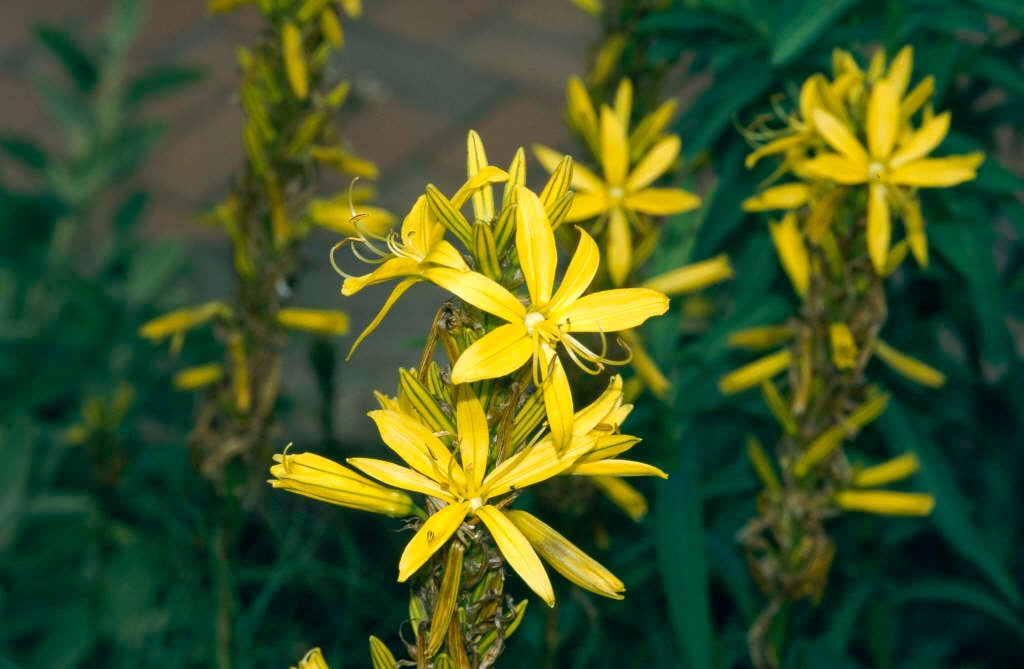Asphodeline lutea
asphodel
A clump-forming perennial with narrow, channelled leaves and fragrant bright yellow flowers to 3cm across, in dense racemes in late spring
Synonyms
Asphodeline flavaAsphodelus luteus
Size
Ultimate height
1–1.5 metresTime to ultimate height
2–5 yearsUltimate spread
0.1–0.5 metresGrowing conditions
Moisture
Well–drainedpH
Acid, Alkaline, NeutralColour & scent
| Stem | Flower | Foliage | Fruit | |
| Spring | Yellow | Green | ||
|---|---|---|---|---|
| Summer | Green | |||
| Autumn | Green | |||
| Winter |
Position
- Full sun
Aspect
South–facing or East–facing or West–facing
Exposure
Exposed or Sheltered Hardiness
H4Botanical details
- Family
- Asphodelaceae
- Native to GB / Ireland
- No
- Foliage
- Deciduous
- Habit
- Tufted
- Genus
Asphodeline can be herbaceous perennials or biennials forming a clump of narrow, grassy leaves, with starry yellow or white flowers borne in racemes on erect stems
- Name status
Correct
- Plant range
- Mediterranean to Caucasus
How to grow
Cultivation
Grow in moderately fertile, well-drained soil in full sun. Can die back in heavy, poorly-drained soil
Propagation
Propagate by seed, sown in pots in a cold frame in spring or propagate by division after flowering
Suggested planting locations and garden types
- Gravel garden
- Mediterranean climate plants
- Banks and slopes
- Flower borders and beds
Pruning
Although you can cut back flower stems after flowering the seedheads are attractive so can be left
Pests
Generally pest-free
Diseases
Generally disease-free
Get involved
The RHS is the UK’s gardening charity, helping people and plants to grow - nurturing a healthier, happier world, one person and one plant at a time.
